Top 10 Reasons to Eat More Protein
Protein is a protein made up of smaller molecules known as amino acids. Protein is required for the health of the skin, bone, muscle, and almost every other ... read more...tissue and organ in the body. Your body fails to complete several chemical reactions if you don't have enough protein in your system. Continue reading to find out some of the Science-Backed Reasons to Eat More Protein!
-
The three macronutrients, fats, carbohydrates, and protein, affect your body in different ways. If you're trying to lose weight, you'll need to find a way to control your appetite. This is when protein comes in handy. Protein has been shown in studies to be incredibly full, allowing you to avoid hunger pangs for longer periods of time.
This is mostly because protein suppresses the hunger hormone ghrelin. It also increases peptide YY levels, a hormone that helps you feel full. Obese women consumed 441 fewer calories per day after increasing their protein consumption from 15% to 30% of calories, according to one research. It also means that even if you consume fewer calories, you will not be hungry. Furthermore, boosting your protein intake reduces the risk of late-night snacking cravings.
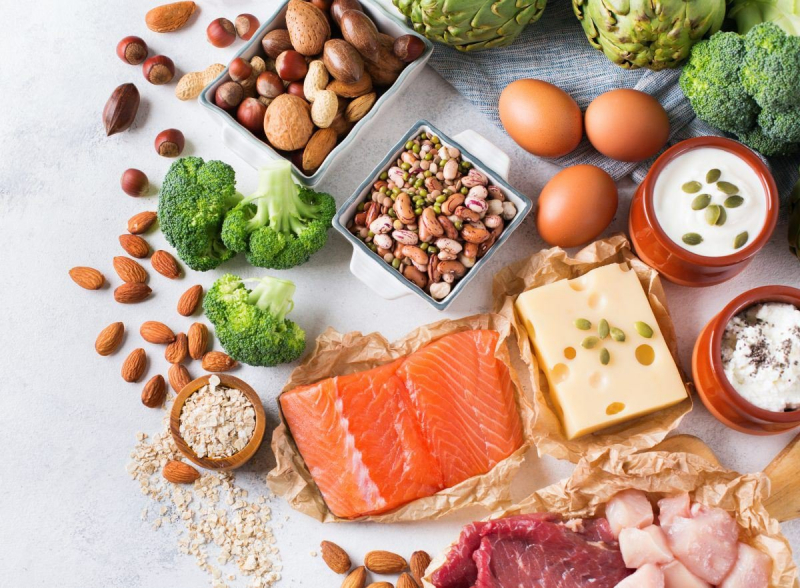
Reduces Appetite and Hunger Levels 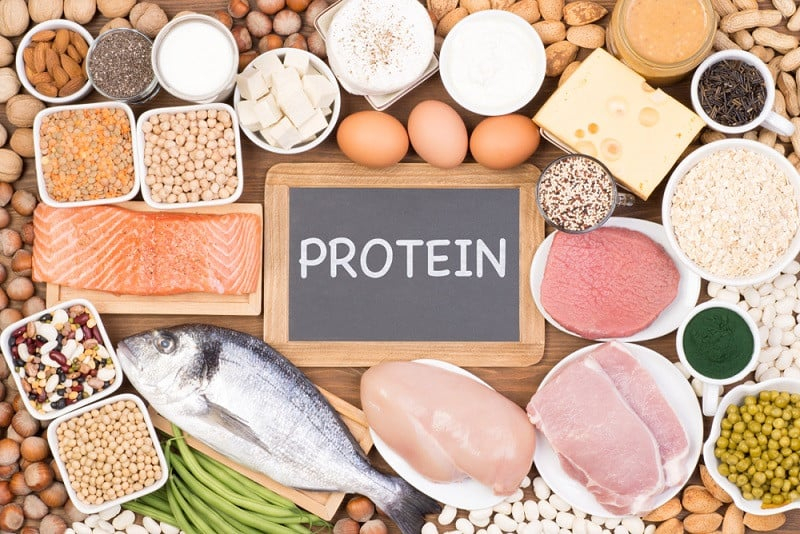
Reduces Appetite and Hunger Levels -
Increasing muscle mass is another way to maintain a healthy weight and keep a slim body. Protein is the primary component of muscular mass. When you undertake strength training, eating enough protein helps you maintain your muscle mass while also promoting muscular development.
Muscles require protein as building blocks, therefore you'll need to eat more to speed up the process. Even if you've worked hard to gain lean muscle, sticking to a high-protein diet can help you keep it. When you increase your protein consumption, your body releases more of a protein called peptide YY, which helps control hunger. Another reason to add lots of protein to your weight-loss diet is to prevent muscle loss. When your body is in a 'catabolic' state during weight loss, protein is also essential to prevent muscle loss.
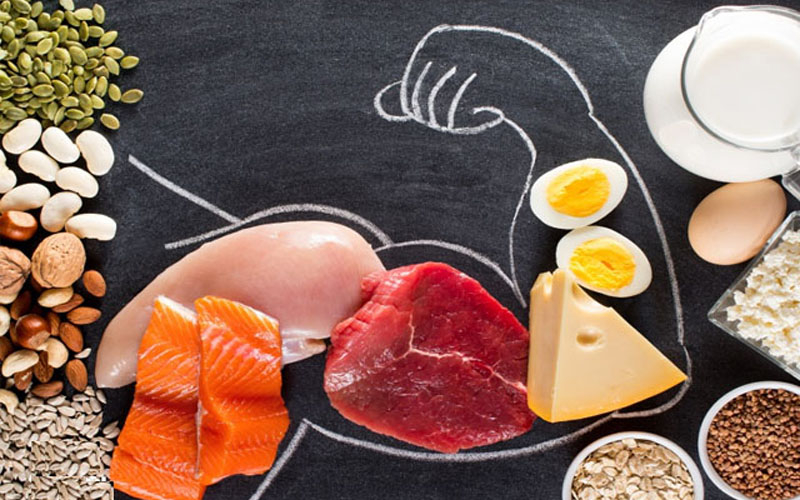
Increases Muscle Mass and Strength 
Increases Muscle Mass and Strength -
Protein, especially animal protein, is thought to be bad for your bones, according to a popular myth. This is based on the idea that protein increases acid load in the body, causing calcium to leach from the bones to neutralize the acid.
The majority of long-term studies, on the other hand, show that protein, especially animal protein, has significant benefits for bone health. As you become older, your bones will become weaker, which is another reason why you should increase your protein consumption. Protein-rich diets help people maintain their bone mass as they age, lowering their risk of osteoporosis and fractures. Remember that any dietary protein shortage can result in a decrease in bone mass, strength, and micro-architecture, which can lead to osteoporosis. This is especially important for women following menopause, who are at a higher risk of osteoporosis. Eating a high-protein diet and being active can help to prevent this from happening.
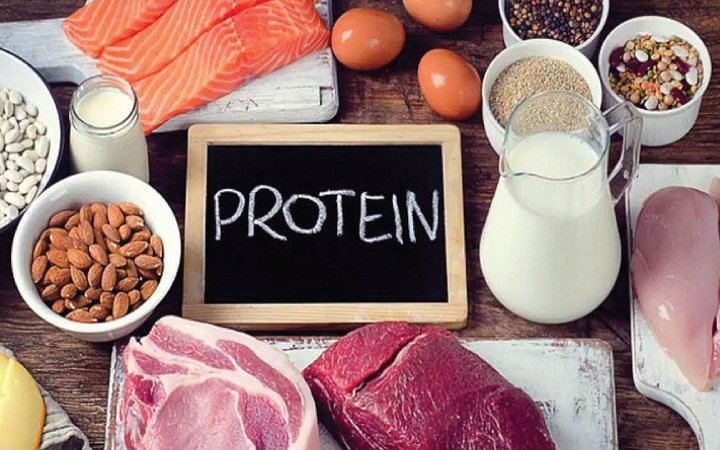
Good for Your Bones 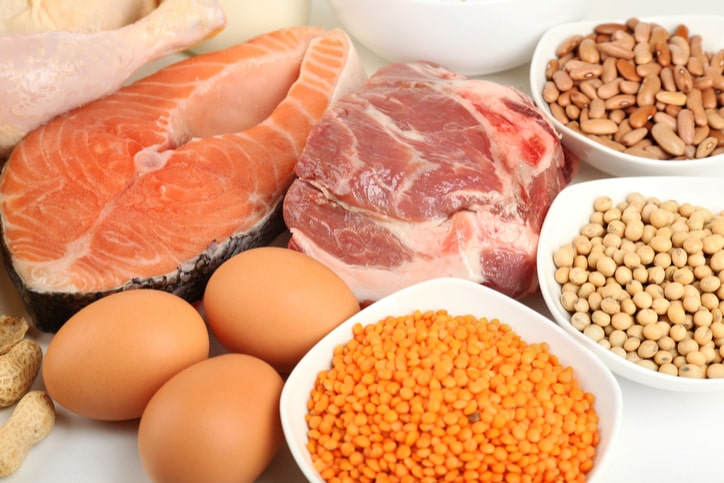
Good for Your Bones -
Because protein boosts your metabolism, it can help you lose weight. Increased protein consumption, when combined with exercise, can help to develop muscle mass, which improves metabolism. Protein also enhances thermogenesis in the body, which means it raises the body's temperature and helps fat burn.
Dieters who took twice the recommended daily amount of protein while cutting their overall calorie consumption lost more fat than those who did not raise their protein intake, according to a new study. Dieters who took the recommended quantity of protein lost 41.8% of their body fat, compared to 70% for those who took more protein. If you combine it with increased water intake, you'll be able to boost your metabolism even more. Drinking water instead of sugary drinks and increasing your protein intake will help you get greater outcomes. In fact, if you want to lose weight rapidly, you should adhere to a high-protein, low-carb diet for a time.
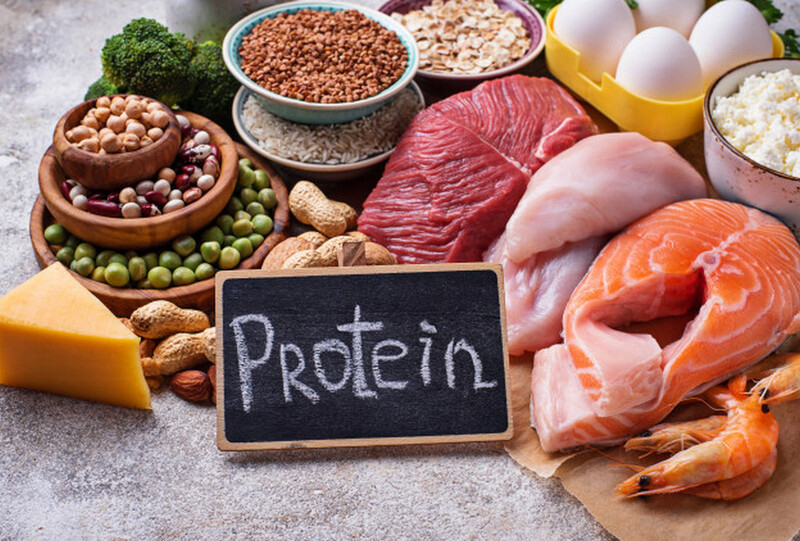
Boosts Metabolism and Increases Fat Burning 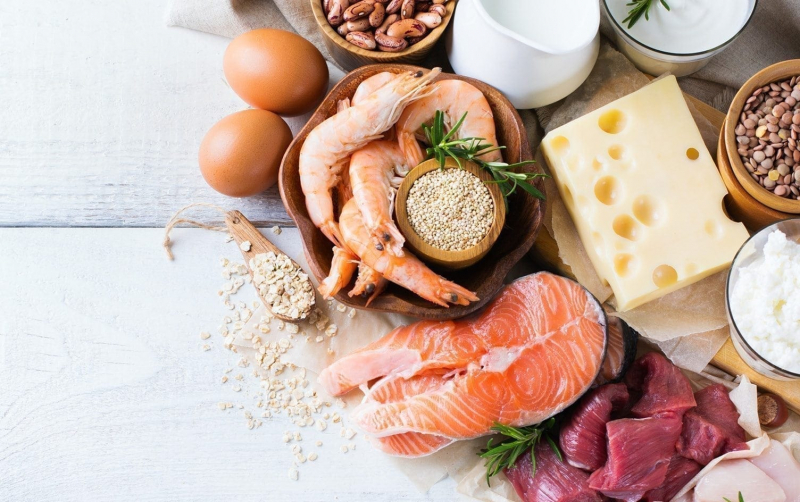
Boosts Metabolism and Increases Fat Burning -
Heart attacks, strokes, and chronic kidney disease are all linked to high blood pressure. It's worth noting that eating more protein has been linked to reducing blood pressure.
Adults who eat a high-protein diet may have a lowered risk of developing high blood pressure, according to a research that found those who consumed the most protein, an average of 100 g protein per day, had a 40% lower risk of developing high blood pressure than those who consumed the lowest. Your kidneys, heart, blood vessels, and a variety of hormones must all work together to keep your blood pressure in check. It's a complicated procedure, but protein helps in the process. Increased protein reduced systolic blood pressure by 1.76 mm Hg on average and diastolic blood pressure by 1.15 mm Hg in a study of 40 controlled studies. A high-protein diet, in addition to lowering blood pressure, was found to cut LDL (bad) cholesterol and triglycerides in another research.
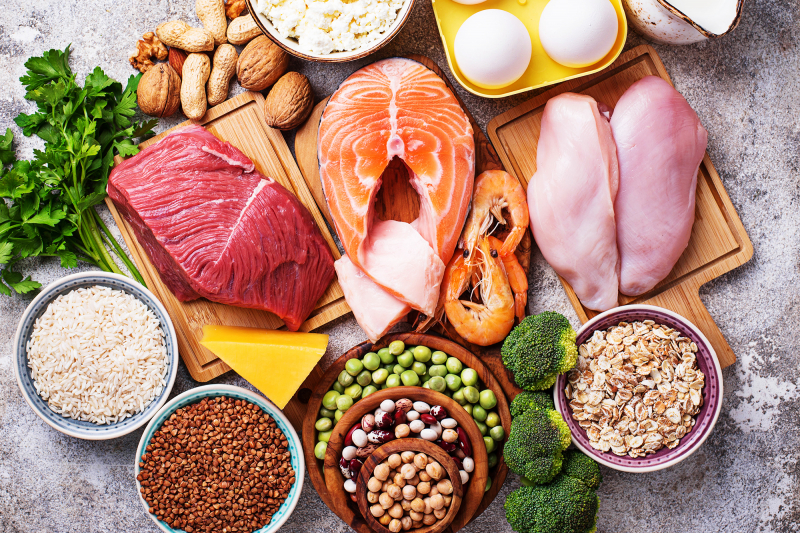
Lowers Your Blood Pressure 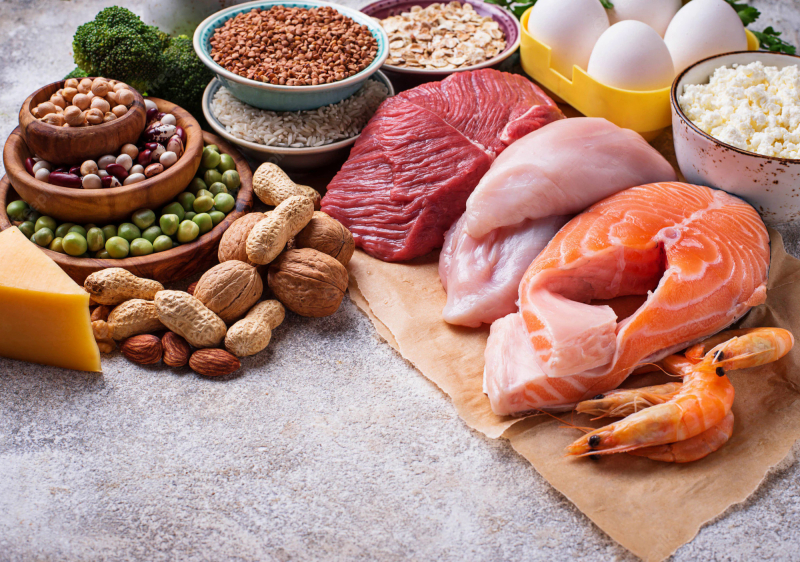
Lowers Your Blood Pressure -
When you haven't recovered from your previous workout, you can't head to the gym and start pumping iron. If your protein intake is insufficient, your body will take longer to recover. Protein increases muscular adaptation after a workout by triggering new protein synthesis in your muscles and helping your body repair all damaged muscle fibers. It also helps in the recovery of depleted energy.
After intense resistance training, you should eat more protein since it increases protein synthesis for as least 24 hours after your workout. Because muscle fibers break after strenuous activities, you must eat protein, or muscle breakdown will outweigh protein synthesis, resulting in a loss of muscle mass. When you combine more protein with proper hydration before, during, and after a workout, your body will recover faster than before.
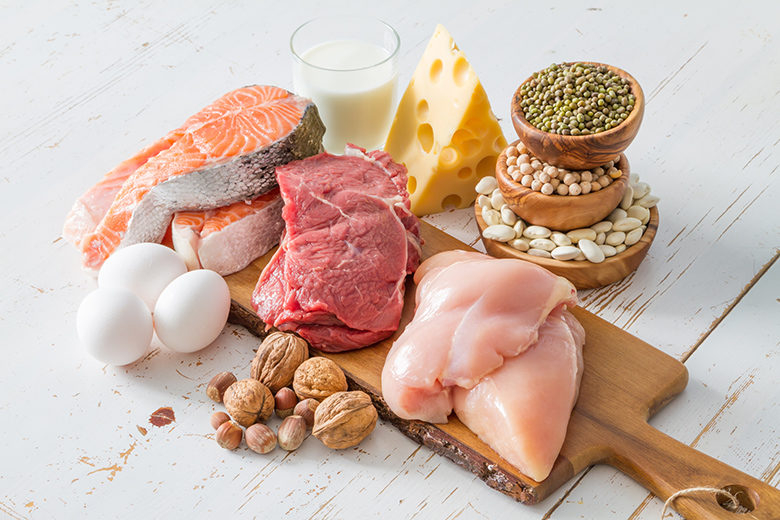
Helps Your Body Repair Itself After Injury 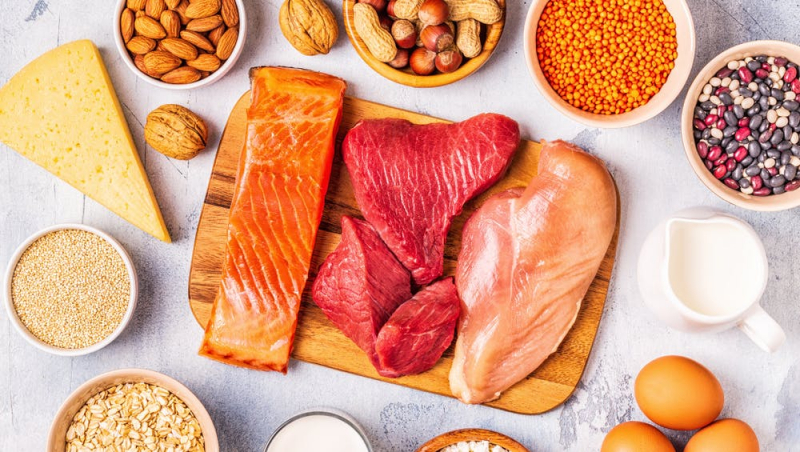
Helps Your Body Repair Itself After Injury -
Protein is essential for everyone, but it is more important as you become older since it helps in recovery from illness and promotes good health. The anabolic responses to the amount of protein you consume will decrease as you get older. In the same way, greater splanchnic extraction requires an increase in protein consumption as you become older.
Increased protein consumption has also been proven to protect you from age-related sarcopenia, which causes your muscles to shrink, according to some studies. The gradual deterioration of your muscles is one of the effects of aging. Age-related sarcopenia is one of the leading causes of frailty, bone fractures, and a worse quality of life in older people. One of the most effective ways to prevent sarcopenia and age-related muscle degradation is to eat more protein. It's also important to be physically active, and lifting weights or doing some sort of resistance training may help a lot.

Helps You Stay Fit as You Age 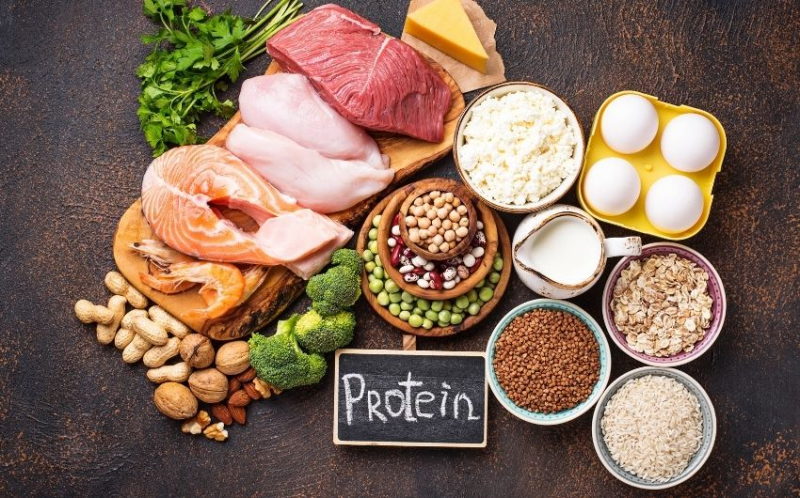
Helps You Stay Fit as You Age -
Stress may cause a variety of physical and mental problems. It can cause blood sugar imbalances, such as hypoglycemia, by affecting blood sugar levels. Increasing your protein intake in the morning will help you stay energetic and reduce the agitation, mood fluctuations, and jitteriness that come with chronic stress.
People who are stressed may find it difficult to sleep. Protein can also help by enhancing sleep quality. Tryptophan is one of the essential amino acids found in dietary protein. Seed-based proteins, such as pumpkin seed and sacha inchi protein, are high in tryptophan. Because tryptophan is the precursor of serotonin, which produces melatonin, it is specifically related to mood support. Melatonin is a hormone produced in response to darkness by the brain. As a result, it is the hormone linked to the sleep/wake cycle.
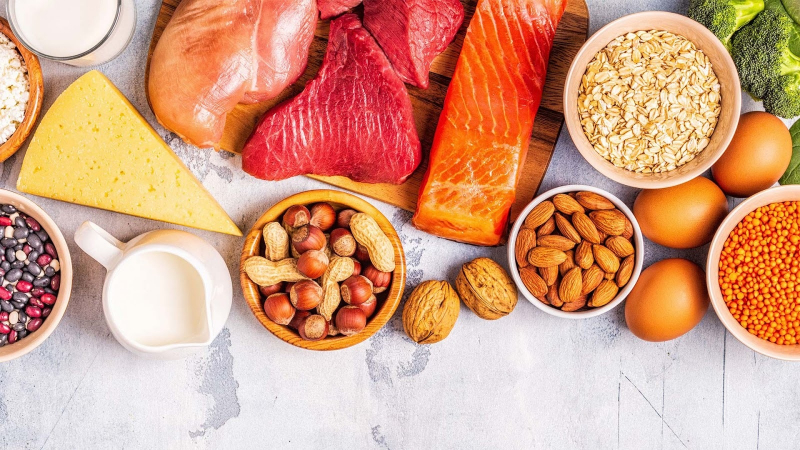
Reduces Stress 
Reduces Stress -
Protein is the two most common substances in the brain, behind water, thus it's critical to nourish your brain with protein-rich foods. Neurons are primarily fat and glucose-fueled, but they communicate with one another and control what happens throughout the body through proteins.
Your body will be unable to produce many hormones, enzymes, and neurotransmitters required for proper brain function if you do not consume enough protein. This is why having a protein-rich breakfast keeps you sharp throughout the day. Consuming extra protein in your system has been found in certain studies to increase brain function and make it easier to remember information. Without a steady supply of amino acids, your brain will not function properly. Increased protein consumption has also been proven in studies to help enhance motor skills over time.
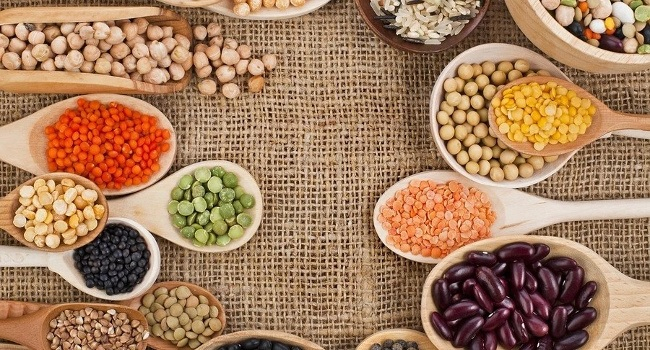
Improves Brain Function 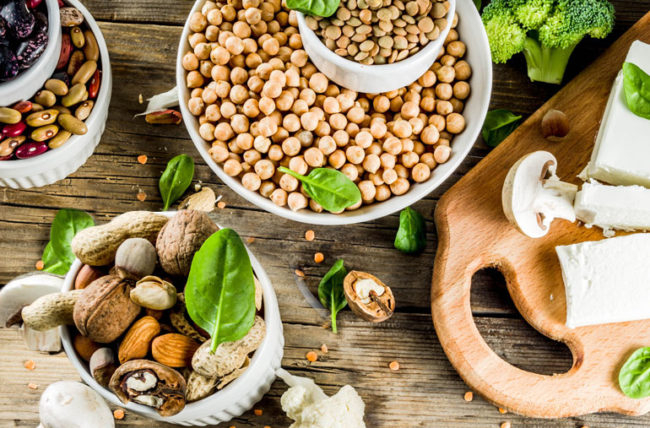
Improves Brain Function -
The importance of getting enough protein in your diet cannot be underestimated. Protein is required not just for the synthesis of protein-derived hormones (also known as peptide hormones), but also for the production of critical amino acids that your body cannot produce on its own. Many physiological processes, such as growth, energy metabolism, appetite, stress, and reproduction, are regulated by peptide hormones.
Protein consumption, for example, affects hormones that control hunger and food intake, providing information about your energy status to your brain. Eating protein reduces the hunger hormone ghrelin and increases the synthesis of hormones that help you feel full, such as peptide YY (PYY) and glucagon-like peptide-1, according to research. A high protein breakfast was linked to increased PYY and GLP-1 levels in 156 obese teens over the course of three months, resulting in weight reduction due to greater feelings of fullness.
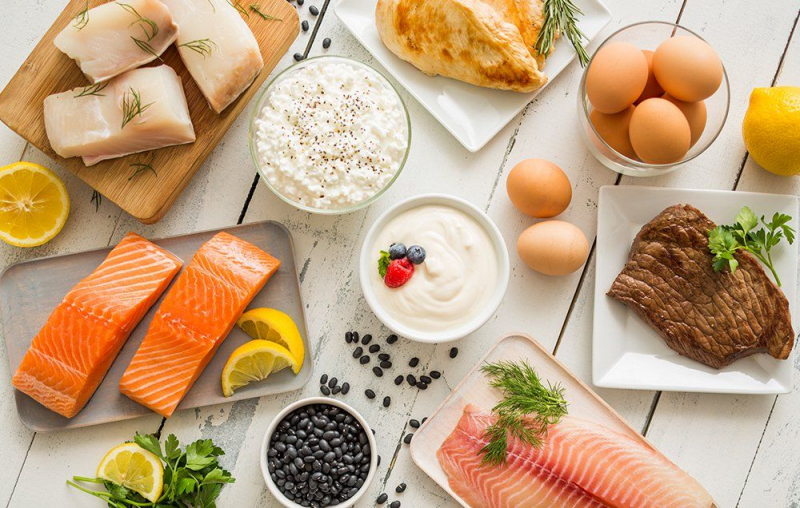
Regulates Hormones 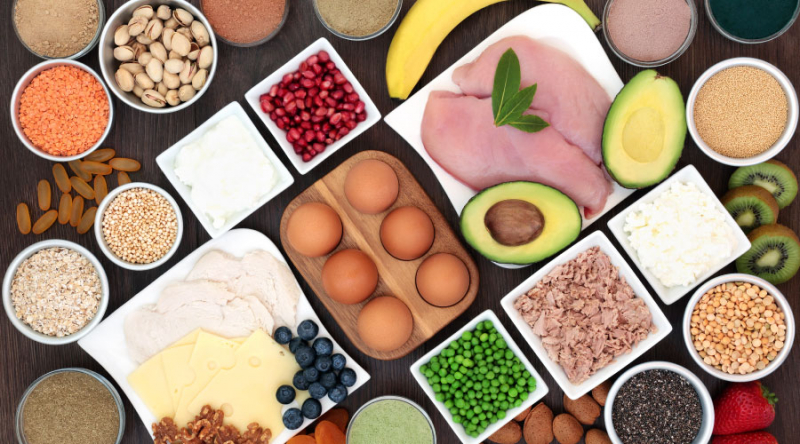
Regulates Hormones































